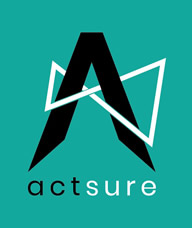IFRS 17 implementation/ Consultation
Background
IFRS 17, “Insurance Contracts,” is an International Financial Reporting Standard issued by the International Accounting Standards Board in May 2017. It replaced IFRS 4, “Insurance Contracts,” which was issued in March 2004 as an interim standard. IFRS 17 is effective for annual reporting periods beginning on or after 1 January 2023, with earlier application permitted. However, some countries’ local accounting regulators or authorities have allowed deferral of its implementation.
IFRS 17 Insurance Contracts establishes principles for the recognition, measurement, presentation and disclosure of insurance contracts within the scope of the Standard. The objective of IFRS 17 is to ensure that an entity provides relevant information that faithfully represents those contracts. This information gives a basis for users of financial statements to assess the effect that insurance contracts have on the entity’s financial position, financial performance and cash flows (IFRS 17.1).
IFRS 17 requires a company to recognize profits as it delivers services under insurance contracts, rather than when it receives premiums. Additionally, it mandates disclosure of information regarding expected profits from insurance contracts to be recognized in the future. This requirement aims to provide a systematic and comparable basis for evaluating the performance of entities issuing insurance contracts and how it evolves over time. IFRS 17 necessitates the involvement of all company functions, where Actuarial, Finance, and IT resources play critical roles.
Scope
IFRS 17 applies to all insurance contracts, including reinsurance contracts that an entity issues and reinsurance contracts it holds and investment contracts with discretionary participation features it issues, provided the entity also issues insurance contracts.
Level of aggregation of insurance contracts
An entity shall identify portfolios of insurance contracts. A portfolio comprises contracts subject to similar risks and managed together, which divide into a minimum of:
(a) a group of contracts that are onerous at initial recognition, if any;
(b) a group of contracts that at initial recognition have no significant possibility of becoming onerous subsequently, if any; and
(c) a group of the remaining contracts in the portfolio, if any
Recognition
An entity shall recognize a group of insurance contracts it issues from the earliest of the following:
(a) the beginning of the coverage period of the group of contracts;
(b) the date when the first payment from a policyholder in the group becomes due; and
(c) for a group of onerous contracts, when the group becomes onerous.
Measurement
On initial recognition, an entity shall measure a group of insurance contracts at the total of:
(a) the fulfilment cash flows, which comprise:
i. estimates of future cash flows;
ii. an adjustment to reflect the time value of money and the financial risks related to the future cash flows, to the extent that the financial risks are not included in the estimates of the future cash flows;
iii. and a risk adjustment for non-financial risk
(b) The contractual service margin, measured applying paragraphs 38–39
(An entity may simplify the measurement of the group using the Premium Allocation Approach if group of insurance contracts meet eligibility criteria.)
Disclosure
IFRS 17 introduces extensive disclosure requirements to provide users of financial statements with information about the nature, amount, timing, and uncertainty of future cash flows from insurance contracts.
Transition
The standard includes specific requirements for transitioning from previous accounting practices to IFRS 17, including full retrospective application or simplified approaches like the modified retrospective approach or fair value approach.
Impact/ Key Challenges
1. Financial Reporting Changes
The implementation of IFRS 17 is expected to have a significant impact on the financial statements of entities that issue insurance contracts, particularly in terms of financial performance measurements, volatility in reported earnings, and financial positions.
2. Expertise and human resources
There is an increased need for expertise and competent staff within an entity to ensure a smooth transition and implementation of IFRS 17, owing to its complexities.
3. Systems and Processes
Implementing IFRS 17 often requires upgrades or changes to existing systems and processes. This includes integrating data across various functions (actuarial, finance, underwriting, claims, reinsurance, sales, etc.) to ensure accurate and timely reporting. Extensive data management capabilities of a system are crucial for this purpose.
4. Business Strategy and Product Design
Companies may need to reconsider their business strategies and product offerings due to the impact of IFRS 17 on financial results. This could influence decisions regarding pricing, underwriting practices, changes in marketing strategies, determination of KPIs, and product design aimed at optimizing profitability under the new reporting framework.
5. Regulatory Compliance
The implementation of IFRS 17 on its transition/effective date is crucial for every company to comply with relevant accounting regulations. Additionally, companies must also adhere to any amendments from insurance regulators that align with IFRS 17.
How Actsure Lab can Assist on IFRS17:
Actsure Lab can assist in the following areas, including but not limited to:
1. Operational Impact Assessment (GAP Analysis) of IFRS 17
This assessment helps identify operational impacts and gaps in data, processes, and systems related to the implementation of IFRS 17. Identifying these gaps and impacts is the initial step to enable management to understand crucial points where development or solutions are required.
2. Implementation Support, including Project Management
Implementation of IFRS 17 has been challenging due to resource and time constraints. Actuarial and Finance support, including project management, will be provided by us to address these challenges.
3. System Development or Vendor Selection Support
IFRS 17 necessitates significant changes to existing systems. Whether developing a new system/module or selecting a vendor, we assist in gathering IT specifications and conducting careful analysis to support your decision-making process.
4. Post-Implementation Technical Support
We offer Actuarial and Finance technical support post-implementation, including assistance with business strategic changes and operational process adjustments.
5. Training and Capacity Building
Equipping staff with technical knowledge of IFRS 17 is crucial for ensuring smooth operation in compliance with the standard. Therefore, we provide continuous training and development for staff on the technical and practical aspects of IFRS 17 implementation.


